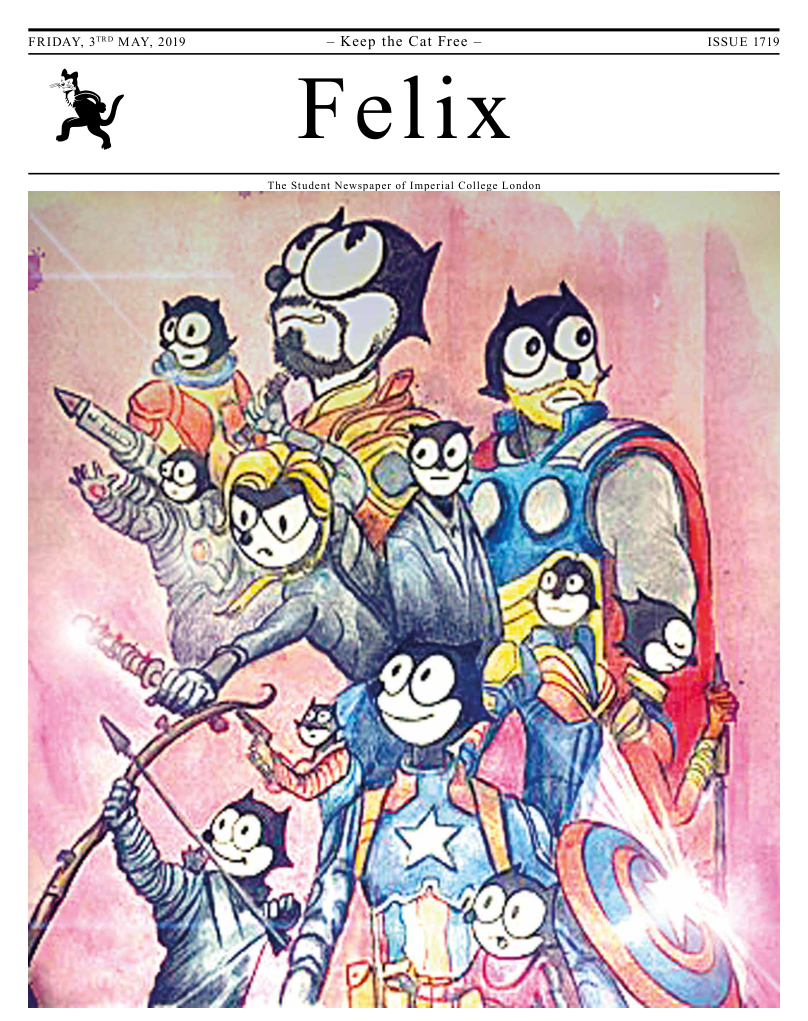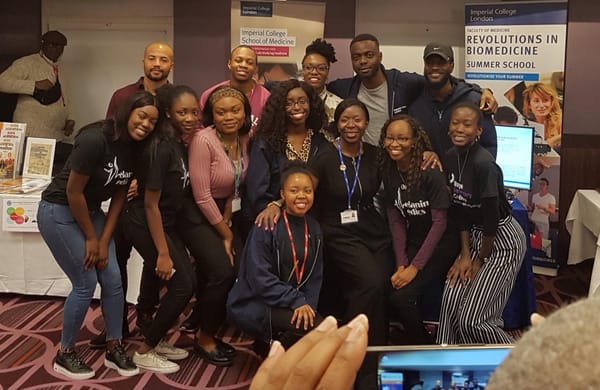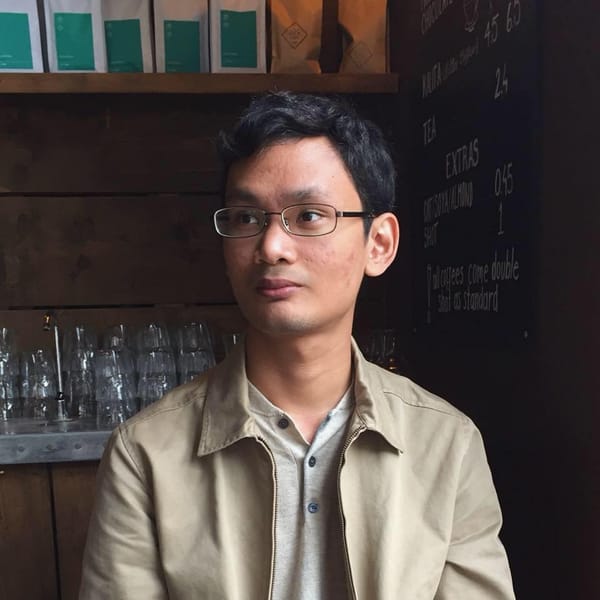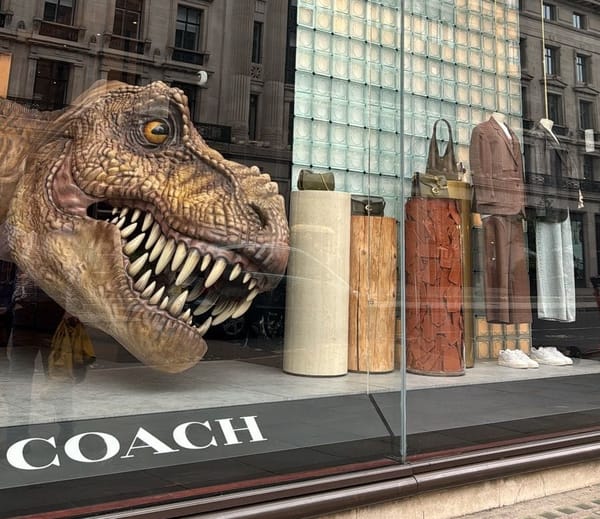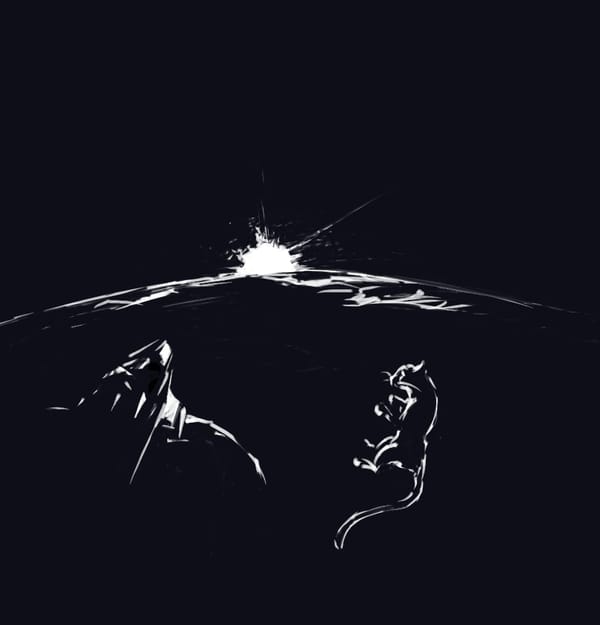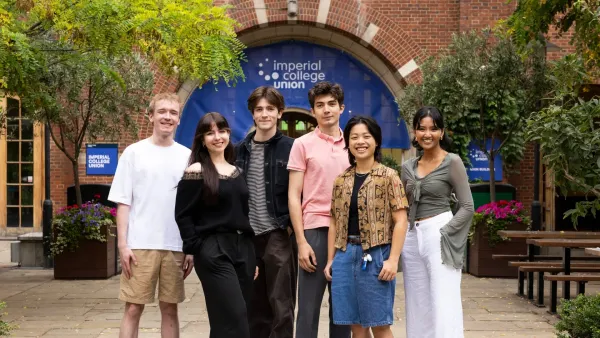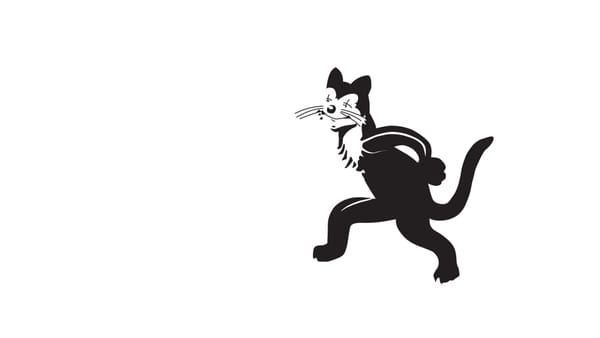Felix Exclusive: Professor Simone Buitendijk on the future of education at Imperial
Professor Simone Buitendijk, Imperial's Vice Provost (Education), sat down with Felix for an exclusive interview on all things education

It's been two years since Imperial began the overhaul of its curriculum through the Learning and Teaching Strategy and, with the launch of increased digital learning - online degrees, a studio space and the use of Vitual Reality in courses such as Chemical Engineering and Medicine - it's certainly an exciting time to discuss upcoming changes to education at Imperial. Vice Provost (Education), Professor Simone Buitendijk, told Felix:
"There are all kinds of different developments. The Digital Learning Strategy is part of the Learning and Teaching Strategy, which I think is actually really important and exciting, it also gives the College a niche. The online courses are really visible and exciting and we have two now in the making – one is the Master's in Global Public Health, which will start in the autumn, and then another one is Master's in Machine Learning and Data Science by the Maths Department; that’s been announced just early this month and we’re hoping to actually launch that in the autumn of next year, 2020. The Digital Learning Hub, which is another big development - we have an experimental classroom and a studio and desk space for editors, where we’re going to invite people in there, teachers who want to teach more interactively and want to try new technology in existing courses for our own students to see how we may make the learning experience better.
On the prospect of increased use of Virtual Reality in teaching, Simone said the following:
"Now that’s a really exciting development. One of the new people in the Digital Learning Hub is a specialist in AR/ VR and he’s now going round talking to lots of people about how to bring that into the teaching and it’s so fun to see people from different areas of expertise, like Omar with Fluid Mechanics and people in Medicine around surgery, work together on how to bring this into the actual education. It’s still very early days but it’s really promising. We’re very much ahead of the curve there. Of course, it really fits our profile, being so STEM-focused."

Professor Buitendijk has also been insturmental in driving forward general improvements on the student experience. With the College about to launch an awareness campaign on Sexual Violence Liaison Officers, the topic of student wellbeing also came up in discussion.
Felix: I just want to gauge where we’re at with improving the education experience since launching the learning and teaching strategy
Simone: We’re doing very well. It’s early days still. We actively started only a year and a half ago and we’ve already done the complete curriculum review, which I’m really proud of and that was a huge amount of work for every department.Every department has reviewed its undergraduate curriculum; the students coming in this autumn will all start on the new curriculum and that curriculum has more space for innovations, less focused on assessments and exams and particular ways of testing, so it’s not just curriculum review but also assessment review. The curriculum, the hard bit of actually formally reviewing it, that just needed to happen and I’m really proud of all the teams that have done it. We’re ready to go into a new era with our new curriculum.
Can you go into a bit more detail into where the money is being spent/ was spent
The Provost's Board approved the Learning and Teaching Strategy and then, as a consequence of that, we got the budget for the first two years. We’ve spent it, to a large degree, on the curriculum review because we were very aware that we can’t ask people who are already so busy with everything just to take on another huge piece of work like curriculum review so we’ve given all the departments that have gone through it extra help with extra teaching fellows; they’ve all done that so a large chunk of money has gone into that. Most of the teaching fellows that have been appointed have been appointed on four-year contracts because we knew we wouldn’t be done in two years. We’re expecting departments to keep moving and now implement the curriculum review with the existing teaching fellows and that will take care of the next batch of money. Another big spend has been to create faculty-wide teams in the faculties of Natural Cciences and Engineering to think about digital transformation. The Digital Learning Hub also has its own budget. Those are the three biggest pieces, apart from smaller projects that we’ve also funded that help towards what we’re trying to do.
Could you shed some light on some of the challenges that you’ve faced and also challenges that you foresee with implementing the Learning and Teaching Strategy.
I think they’re challenges that face everybody who’s trying to implement a big change program because it really needs a different way of thinking about teaching. Most research-intensive universities, and Imperial was no exception, aren’t really focused that much on thinking about teaching. We all have been taught a certain way, we’re very successful people, so we just assume that we’d be doing that because it works. To tell people that maybe there’s not a lot of evidence for lecturing as the primary way of teaching and, in this day and age, it’s very important to build that sense of community and work with students as partners, that’s a big culture change. There are loads of teaching fellows who are really excited about this; they’re teachers and researchers who have already been trying things, people like David Dye have been doing this for quite a few years now but they’ve been working in relative isolation and now this is something that we all want to embrace. Getting everybody on board, that requires culture change, it requires careful management, it requires rewarding the right behaviours and especially moving out of doing things on your own. For me, the most important thing is collaboration and getting out of the relative competitive nature that we have. If we want the College to become a better place for our students as a group, it’s really important to focus on collaboration and making sure that we implement all the good examples, we look at the parity of experience for students. I think that’s really important, that it doesn’t depend on which department you’re in to have a good experience, that every Imperial student needs to have a good experience in everything. One thing I also really love is the fact that we now have the Centre for Higher Education Research and Scholarship led by Martyn Kingsbury. That was previously only EDU [Educational Development Unit] and now it’s much bigger. It’s really looking at making sure that what we’re doing gets evaluated, that we don’t implement things that aren’t working.
I get the sense from listening to you that one of the main aims of implementing the learning and teaching strategy is to garner a tighter-knit community within Imperial.
I think it’s also creating a sense of community in the classroom and the breakout spaces, not just the community in the Union, where people come together to play sports and socialise, but also a sense of community with the teachers and with eachother.
I just wanted to know how students have shaped the curriculum review.
Students have been involved. We’re working really closely with the Union reps; they’re pretty much in every meeting, we’re getting lots of feedback from them and they, of course, are engaged with departmental reps, so we’re trying as much as possible to get students on board in the design. As much as possible, students also delivered their input and that’s certainly how we want to go forward. It’s very important to not just ask students what they feel but also make them part of the team that’s building this new way of working. Some things we’ll be trying for the first time here and we won’t know what works for students unless we do it together, work with them, get that really quick feedback.
Provide some information about I-Explore please.
That’s one of the exciting developments. In the new curriculum, every undergraduate student needs to have a five credit point space somewhere in their curriculum, it can be in the 2nd year or 3rd year, to do something entirely different from their core curriculum and it counts towards their degree. It will be pass/fail because that was easier and more acceptable and we’re hoping to have a big choice of options; Horizons is going to be part of it, the Business for Engineering Students (BPES) is going to be part of it. We’re going to develop much more and one of the ideas that the students brought in was multidisciplinary projects because that’s one thing that students really want - more projects but then working with students from very different disciplinary backgrounds. We’re asking departments to start developing those kind of projects.
How would you say Imperial rates teaching-wise right now and how do you think it will rate once the curriculum review and the Learning and Teaching Strategy are implemented?
I think right now we rate sort of average. I don’t think we’re that different from many super research-intensive universities, especially in Europe, but I don’t feel that’s good enough for us. We’re so good in terms of our research and my vision is that, in terms of our education, we’ll be rated just as highly as we are in terms of our research. I don’t feel that there’s any competition there, that either you’re really good at research or good at education, I think it can go really hand-in-hand and where we have research-led education. I think we’re superbly positioned to make that work. We’ve just started so, if we keep doing this, if we get to the level where the new way of thinking and the new community building actually starts becoming a reality for every Imperial student, I think we’re going to be very much ahead of the curve and an example for lots of other universities. I don’t know of any university on this planet that does it university-wide. Cornell. for instance, have done it with their science faculty, University of British Columbia have done it with a few faculties but, because we’re relatively homogeneous in terms of our topics, we can do it university-wide. I think that’s going to generate its own momentum because it’s for every student; it’s not just if you’re in the science faculty, you’re lucky but, if you’re in another faculty, you’re not.
Are there any other ways, outside of the Learning and Teaching Strategy, that Imperial could improve on the education front?
I think the Learning and Teaching Strategy is an engine for bigger change but, eventually, it will need to go into all kinds of other areas aswell. For instance, the career prospects of teachers and researchers - how seriously do we take education as a career - that’s hardly part of the Learning and Teaching Strategy but it also needs to go into our research strategy. Thinking about students’ wellbeing more broadly, what student services are doing, thinking about how we work together between departments; with the Learning and Teaching Strategy as an engine for collaboration and thinking about parity of experience for students, we’ll probably see that will start creeping into other areas of the College and a wider culture and sense of belonging. I focused on students but I think if our students have a very positive, good sense of belonging, I can’t imagine that wouldn’t also change how our staff and teachers feel about the College and being part of an exciting community.
How can students get involved in increasing that sense of community?
Students are getting involved and I think we are going to try and make that happen more. In almost every committee that we now start, we are very aware we need good student representation and, if students who read your article would like to be involved, I think the invitation to go to their representatives and say, “we want to be involved”, is an open invitation.
How do the improvements in the teaching strategy etc. look outside of the classroom, with regards to the student experience and wellbeing?
Well that’s one of the things that we’re very aware of, that we could do better in terms of, for instance, student spaces and common rooms and places for students to come together. It’s also the layout on campus and how we make that work - that’s going to be another big piece of work. We know we can’t just focus on classrooms, even though they also need improving, but also breakout spaces, common rooms.
The conversation ended with discussions on the National Student Survey (NSS), a postgraduate pilot version of which is soon to be launched. Simone's final remarks were:
"After last year’s NSS results, I’ve actually convened an NSS working group; first we were going to look at quick fixes, which we have identified, but it’s been a really positive exercise and we’re going to continue coming together. It's Heads of Departments and tutors, it’s very much a cross-College group that basically started by sharing good examples of how we can change student experiences positively so even departments that weren’t doing so well in the NSS still had good examples. It’s been really amazing group and students, of course, are very much involved and telling us what’s important for them. I think we’ll keep that group up and running after the next NSS results, whether they’re good or bad or medium, it almost doesn’t matter, we just need to keep thinking about how to improve the student experience."
When asked which "quick fixes" have been implemented already, Professor Buitendijk told Felix:
"One quick fix that came up from a few departments was having student staff parties at the beginning of an academic year. People really enjoyed that and it’s not that expensive and we don’t really have to do a whole lot of work to make that happen. Things like that and, for instance, knowing that the common room is really important and, of course, that’s not fixed as easily when you don’t have one but at least saying to eachother, 'every student should have their own common room'. It’s been really useful to compare and hear people talk proudly about the way they deal with the issues and what they’ve done in their department and using that for inspiration."

